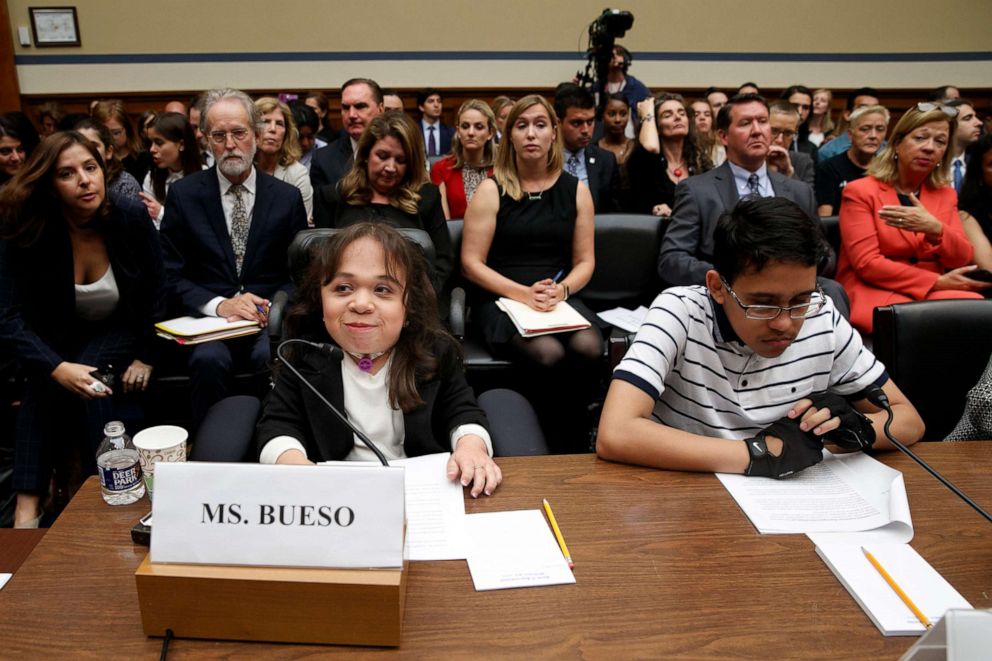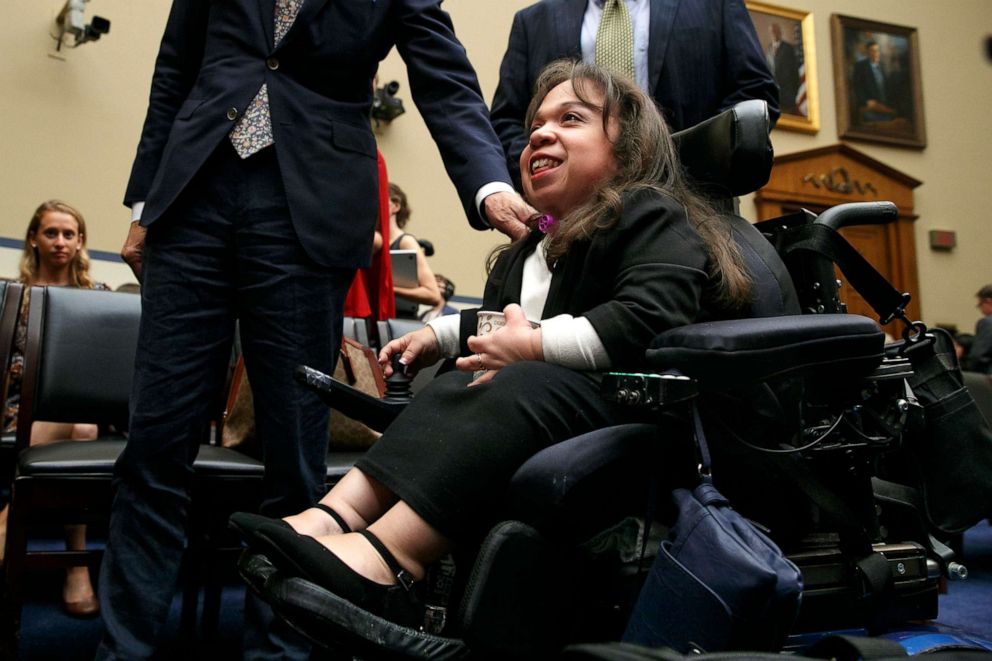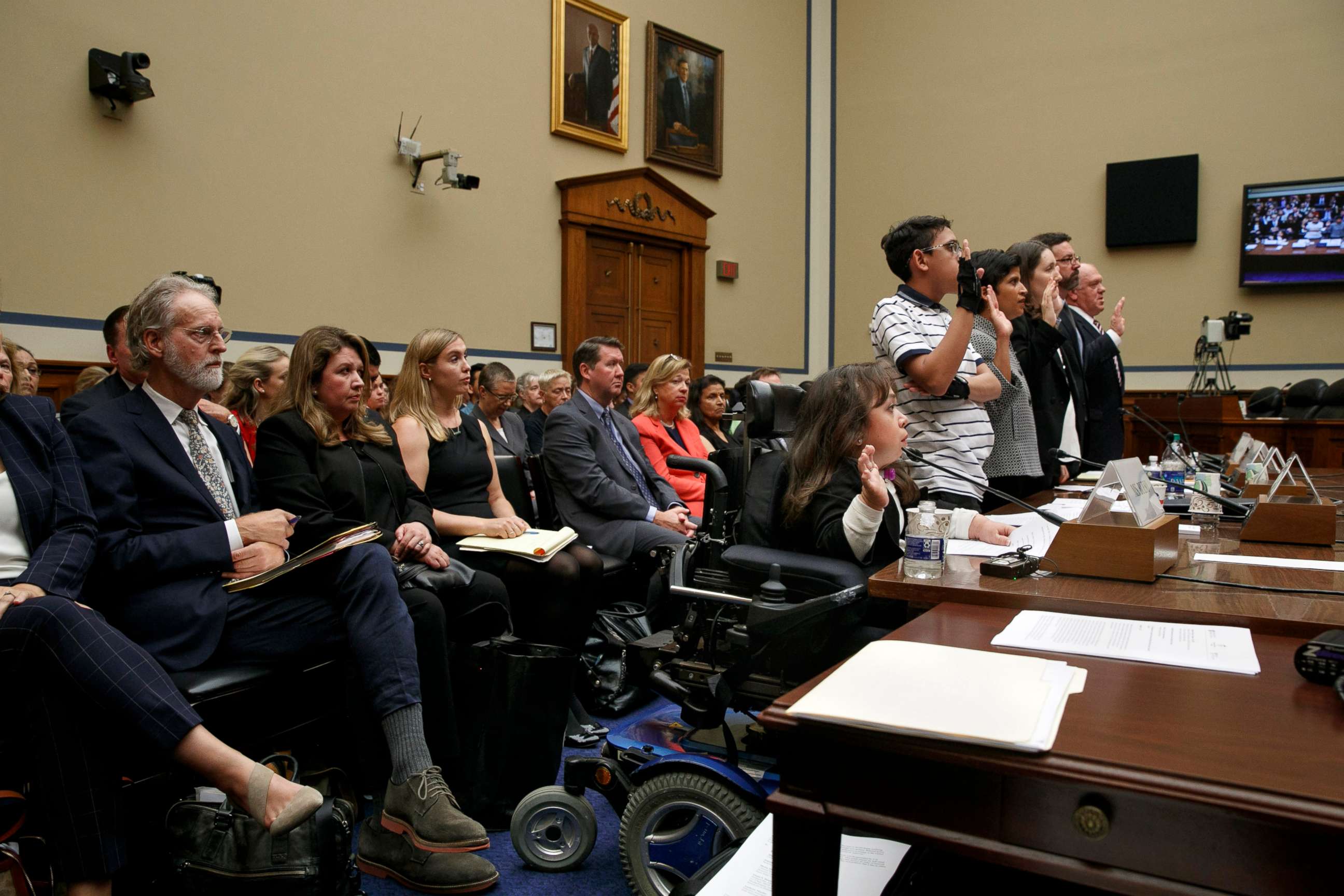Trump admin reverses decision to deny immigrants' access to medical care
The move followed critical backlash from House Democrats.
U.S. Citizenship and Immigration Services will resume accepting applications to delay deportations for non-citizens and their families legally seeking medical treatment in the country, USCIS confirmed to ABC News.
It wasn't immediately clear why the administration decided to reevaluate the policy and backtrack on the decision to deny all applications. The full reversal comes after the agency initially canceled the application review process, sent letters to those with pending applications and later allowed pending applications to continue while refusing to accept new ones.

In the statement to ABC News on Thursday, USCIS indicated that it was Homeland Security Secretary Kevin McAleenan who made the decision to revert back to the policy that was in place prior to the abrupt denials. McAleenan oversees the subsidiary immigration agency.
"At the direction of acting Secretary McAleenan, USCIS is resuming its consideration of non-military deferred action requests," a USCIS spokesperson said in a statement.
Civil rights advocates started to challenge the policy shift in court earlier this month. While the grounds of their legal challenge appear to be alleviated on this issue, other aggressive measures of Trump's immigration agenda continue to be litigated.
Congressional Democrats were outraged about the initial policy move and called for the testimony of two young immigrants in front of the House Oversight Committee last week.
"I want to live," Maria Isabel Bueso told lawmakers at the hearing.
She suffers from a rare genetic disorder and underwent treatment in the U.S. while participating in medical research trials.
"I am a human being with hopes and dreams in my life," she said. "This is not a partisan issue. This is a humanitarian issue and our lives depend on it."

The Oversight Committee indicated on Thursday that they had received a Homeland Security statement informing them of the reversal.
"In these dark days of continuing government assaults on human rights and human dignity, this appears to be a moment of good news," Chairman Jamie Raskin said in a statement. "It is remarkable that it takes emergency hearings in Congress and a national uproar to protect seriously ill children from facing deportation."

In a statement to ABC News on Thursday, USCIS confirmed that it was Homeland Security Secretary Kevin McAleenan who made the decision to revert back to the policy that was in place prior to the abrupt denials. McAleenan oversees the subsidiary immigration agency.
"At the direction of acting Secretary McAleenan, USCIS is resuming its consideration of non-military deferred action requests," a USCIS spokesperson said in a statement.
Civil rights advocates started to challenge the policy shift in court earlier this month. While the grounds of their legal challenge appear to be alleviated on this issue, other aggressive measures of Trump's immigration agenda continue to be litigated.




